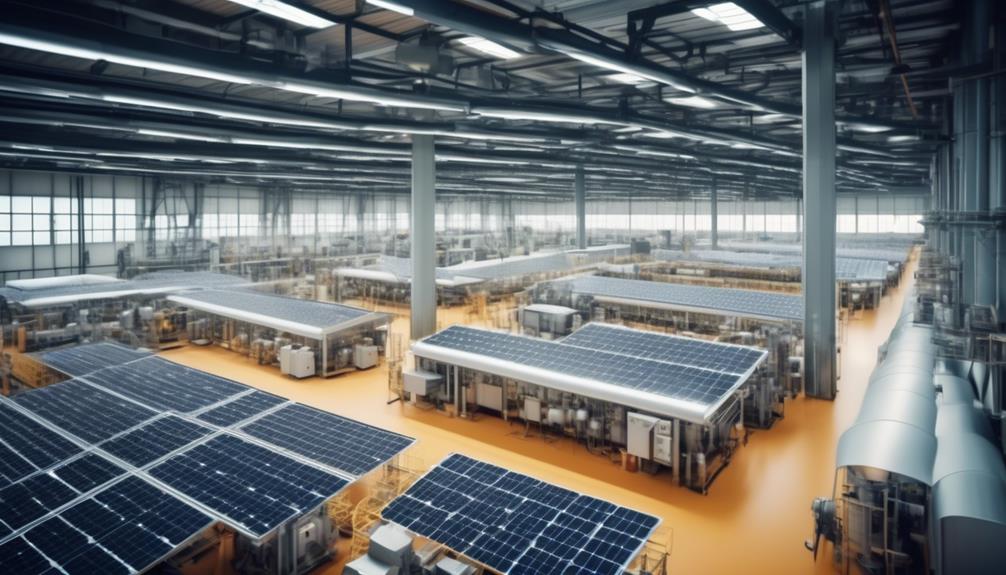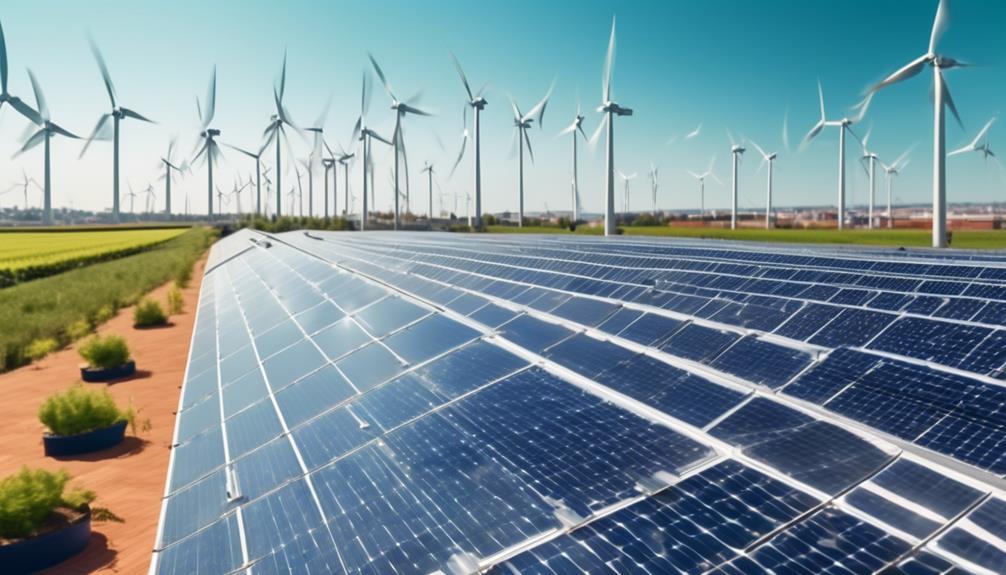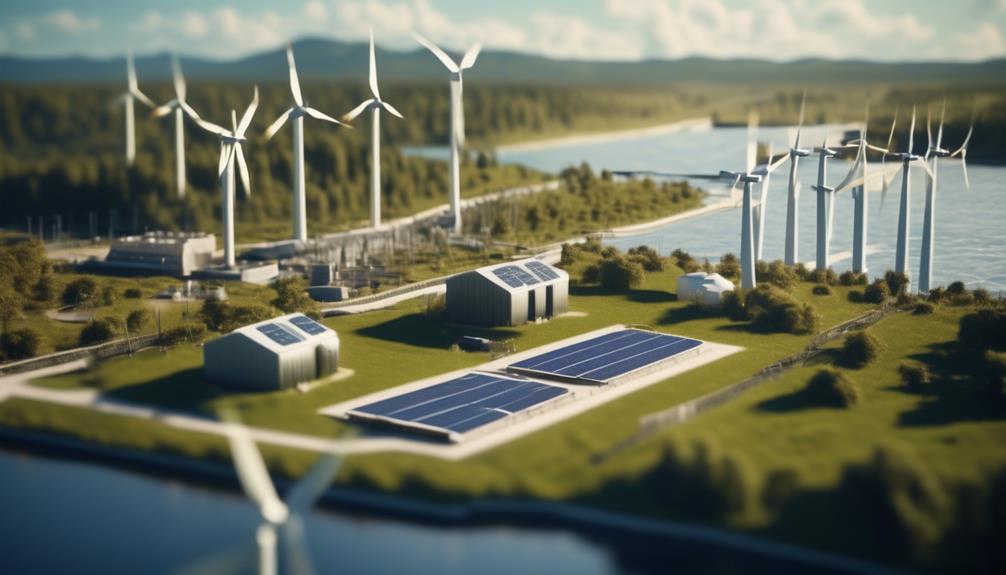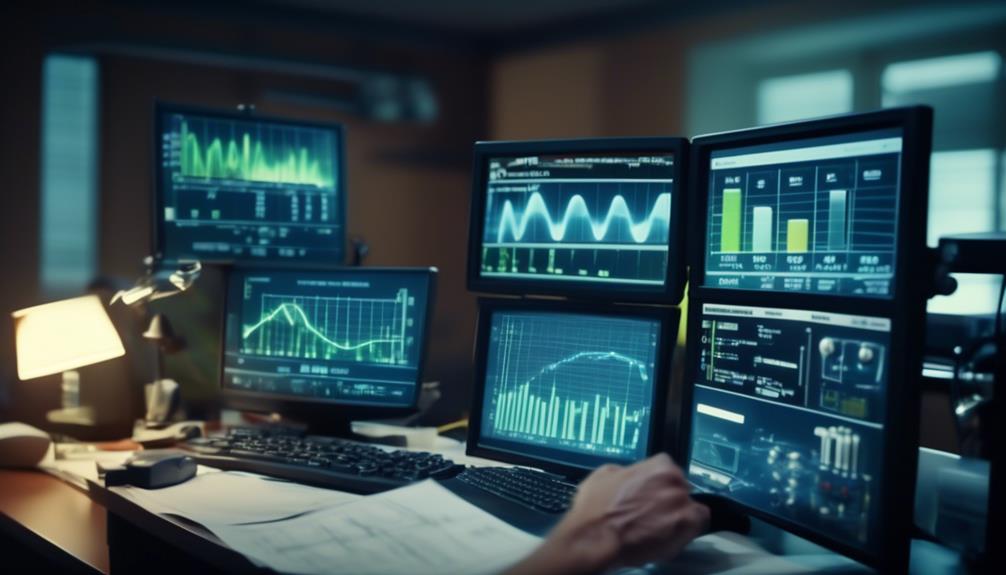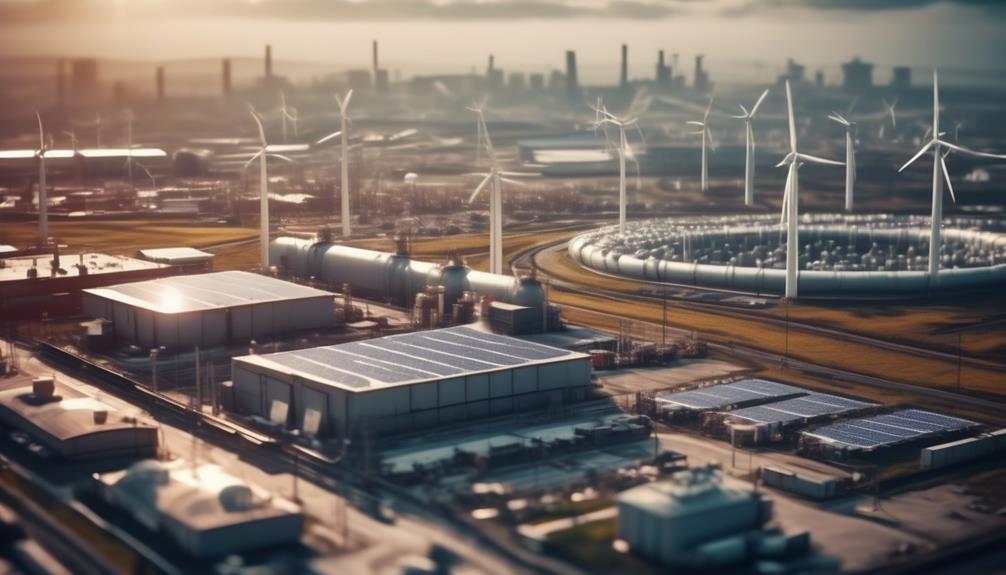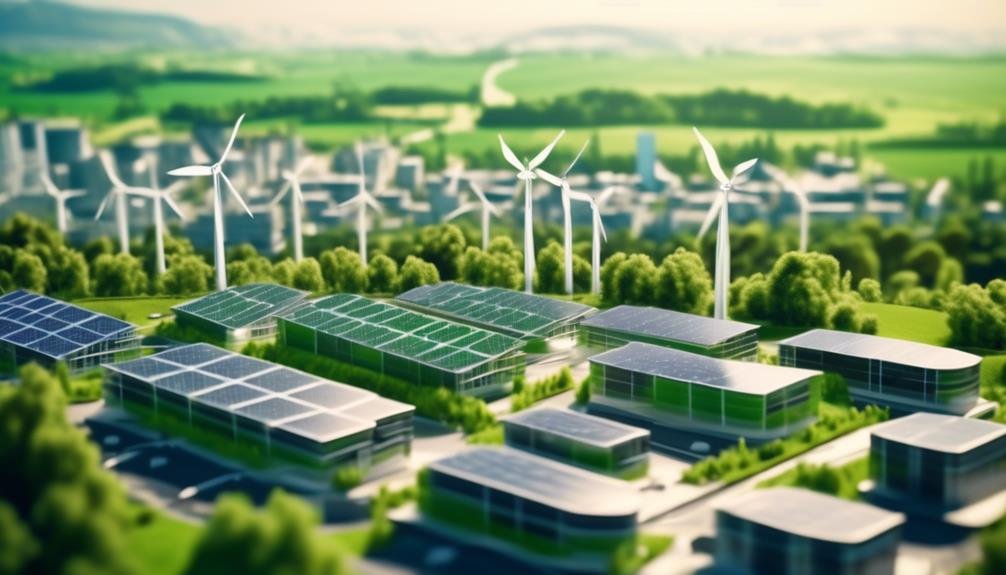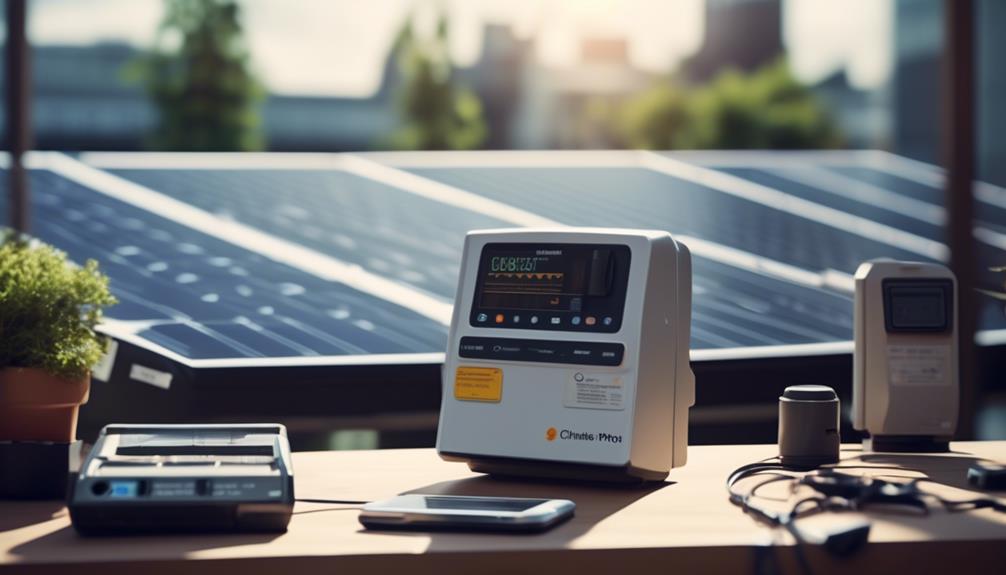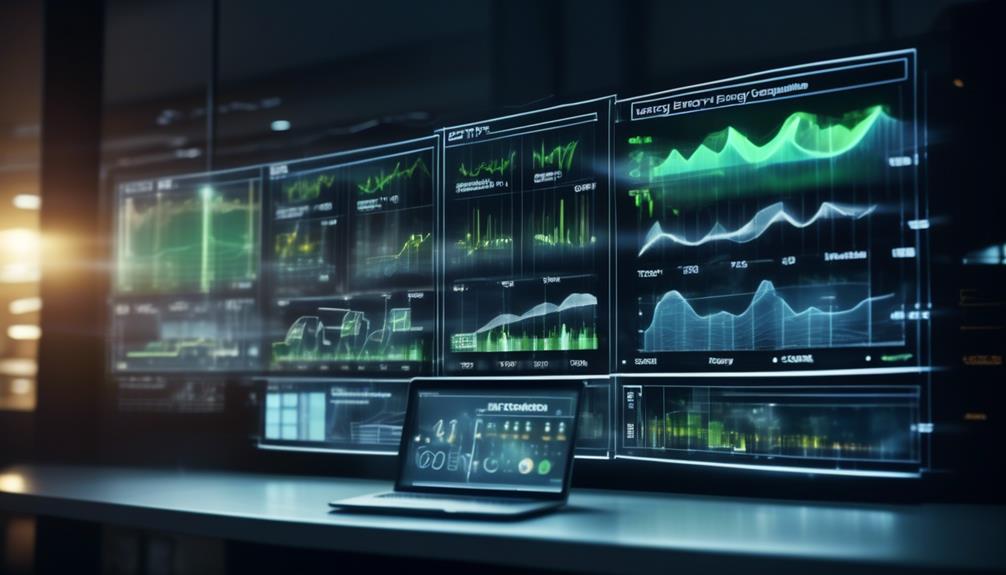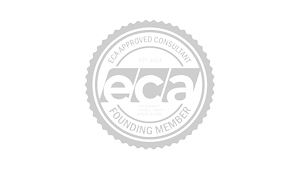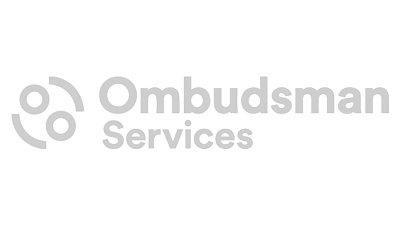In an era where sustainability meets fiscal prudence, businesses are tirelessly searching for strategies that not only trim their energy expenses but also align with eco-friendly practices. The journey towards optimising energy usage and embracing renewables, while crucial, is fraught with complexities ranging from initial investment hurdles to understanding the nuances of energy data analytics.
With an intricate blend of industry insights and practical experience, this article aims to demystify the process, offering a beacon for companies navigating the murky waters of energy efficiency.
Understanding the unique challenges and objectives of businesses in their quest for energy optimisation, our approach is tailored to address these needs with precision and empathy. We recognise the significance of not just implementing energy-saving measures but ensuring their adaptability and effectiveness over time.
As we delve into the essentials of proactive energy monitoring, readers will find a comprehensive guide that not only enlightens but empowers, paving the way for a sustainable and financially healthy future.
Continue reading to uncover actionable insights and strategies that promise to transform your approach to energy management.
Conduct Comprehensive Energy Audit
Conducting a comprehensive energy audit is a foundational step for businesses seeking to identify energy wastage and inefficiencies within their operations. By analysing energy consumption trends, reviewing utility bills, and assessing equipment performance, businesses can gain valuable insights into their energy usage patterns.
This proactive approach helps in identifying areas for improvement and implementing energy-saving strategies. The comprehensive audit process not only helps in discovering opportunities for optimisation but also provides a roadmap for smart energy management. Businesses can install energy monitoring systems to accurately track energy usage and improve efficiency.
With the right energy monitoring system in place, businesses can reduce energy wastage, lower operational costs, and enhance overall energy management. Therefore, a comprehensive energy audit is crucial for businesses aiming to take control of their energy usage, identify inefficiencies, and pave the way for proactive energy management.
Embrace Energy-Efficient Lighting Solutions
Evaluating and investing in energy-efficient lighting solutions is a strategic approach for businesses to reduce energy consumption and lower operational costs. Incorporating LED lighting and smart lighting controls can optimise energy usage and minimise waste. Implementing lighting scheduling and automation further reduces unnecessary energy consumption.
Businesses can also benefit from incorporating natural lighting and daylight harvesting techniques to decrease energy usage. Retrofitting existing lighting systems with energy-efficient options improves sustainability and cost-effectiveness. Proactive monitoring and management of lighting systems through smart meters enable businesses to track and analyse energy usage, identifying opportunities to reduce energy waste and improve efficiency.
This strategic approach not only helps in reducing the environmental impact but also contributes to substantial cost savings over time. By embracing energy-efficient lighting solutions, businesses can take control of their energy management, ensuring that their operations are as efficient and sustainable as possible.
Upgrade to Energy-Efficient Appliances and Equipment
After optimising lighting systems for energy efficiency, businesses can further enhance their sustainability initiatives by upgrading to energy-efficient appliances and equipment, thereby continuing the trajectory of reducing energy consumption and operational costs. Upgrading to energy-efficient appliances and equipment can significantly reduce energy usage and lower energy bills, often by up to 30%. This not only leads to cost savings but also helps in reducing carbon dioxide emissions and conserving natural resources. Proactive energy monitoring allows organisations to detect energy inefficiencies and address areas of waste by upgrading to energy-efficient appliances and equipment. Moreover, implementing energy-saving initiatives based on monitoring insights can lead to substantial energy cost reductions. Upgrading to energy-efficient appliances and equipment also demonstrates a commitment to energy efficiency and sustainability practices, which is increasingly important for businesses today. The table below illustrates the potential impact of upgrading to energy-efficient appliances and equipment on energy consumption and operational costs.
| Benefits | Description |
|---|---|
| Cost Savings | Upgrading leads to lower energy bills and reduced operational costs. |
| Environmental Conservation | Reduces carbon dioxide emissions and conserves natural resources. |
| Commitment to Sustainability | Demonstrates dedication to energy efficiency and sustainable practices. |
Implement Smart Metering and Monitoring Systems
Implementing smart metering and monitoring systems is a pivotal step for businesses aiming to gain real-time insights into their energy consumption and identify opportunities for enhancing operational efficiency. These systems enable the real-time tracking of energy consumption, providing detailed insights for reducing energy costs and improving operational efficiency.
By proactively monitoring energy consumption, organisations can identify energy inefficiencies and areas of waste, allowing for the implementation of energy-saving initiatives. This proactive approach empowers organisations to make informed decisions based on real-time data on energy usage.
Smart metering and monitoring systems also facilitate data collection, which is crucial for understanding patterns of energy usage and identifying areas for improvement. Ultimately, the implementation of these systems is crucial for achieving energy efficiency and reducing operational costs.
Optimise HVAC Systems for Energy Efficiency
To further enhance operational efficiency and reduce energy costs, businesses can optimise their HVAC systems for energy efficiency through regular maintenance and proactive monitoring. By implementing scheduled maintenance and making temperature adjustments, businesses can effectively lower energy consumption and optimise their HVAC systems. Real-time monitoring plays a crucial role in detecting energy inefficiencies and addressing areas of waste in HVAC systems. Proactive monitoring also enables businesses to address maintenance issues before they occur, allowing for a predictive maintenance plan that reduces downtime and costs. Moreover, leveraging insights from proactive monitoring can lead to the implementation of energy-saving initiatives, which has the potential to reduce energy costs by up to 30%.
| Optimising HVAC Systems for Energy Efficiency |
|---|
| Implement scheduled maintenance |
| Make temperature adjustments |
| Real-time monitoring for energy inefficiencies |
Implement Effective Energy Management Software
What precise strategies can businesses employ to effectively implement energy management software for real-time monitoring and optimisation of energy usage within their operations?
Implementing proactive and effective energy management strategies involves the utilisation of advanced monitoring tools and data analysis provided by energy management software. These systems offer valuable insights into energy consumption, enabling businesses to identify areas of inefficiency and take targeted actions to reduce energy consumption. By leveraging the capabilities of energy management software, organisations can proactively monitor their energy usage, leading to improved operational efficiency and cost savings.
Furthermore, energy management software facilitates the implementation of energy-saving initiatives based on the insights gained from the data analysis. This can result in a substantial decrease in energy costs, with potential savings of up to 30% for businesses.
Additionally, these systems provide support for compliance with energy efficiency and sustainability standards such as ISO 50001, LEED, and ENERGY STAR, demonstrating the organisation’s commitment to sustainable practices.
Educate and Involve Employees
With a foundation of advanced monitoring tools and data analysis from energy management software, educating and involving employees in energy-saving practices becomes integral to fostering a culture of sustainability and enhancing overall energy efficiency within a business.
It is crucial to educate employees about energy-saving practices to promote a sustainable future and energy consciousness. Encouraging the use of natural light, optimising computer settings, and establishing energy-saving policies and guidelines are practical steps to reduce energy consumption and enhance operational efficiency.
Regular training sessions can further promote energy-efficient behaviour, while engaging employees in energy-saving initiatives is essential to involve them in proactive energy monitoring. Empowering employees to contribute to energy efficiency by incorporating their insights and suggestions fosters a sense of ownership and responsibility.
Embrace Renewable Energy Sources
Embracing renewable energy sources is a strategic and sustainable approach for businesses seeking to reduce energy waste and minimise dependence on fossil fuels. By incorporating solar panels and wind turbines, businesses can significantly reduce their carbon footprint and contribute to a greener planet. Transitioning to renewable energy sources offers long-term cost savings and aligns with a commitment to sustainable practices.
Effective waste management practices, such as recycling and waste minimisation, complement the adoption of renewable energy sources to promote sustainability. Setting realistic energy-saving goals, monitoring progress, and continuously improving energy-saving initiatives are essential when embracing renewable energy sources.
Smart building technologies and smart metering and monitoring systems play a crucial role in optimising energy consumption and reducing overall energy costs. Businesses can benefit from proactive energy monitoring by integrating renewable energy sources into their energy management strategies, ultimately promoting a more environmentally friendly and economically efficient operation.
Implement Effective Waste Management Practices
Effective waste management practices play a critical role in minimising energy waste and promoting sustainability within businesses. By implementing effective waste management practices, businesses can significantly impact their energy consumption based on proactive energy monitoring and data-driven decision-making.
Conducting energy audits to identify areas of waste and opportunities for optimisation is crucial. Utilising real-time monitoring tools can help in identifying targeted energy reduction strategies and predictive maintenance. Embracing energy-efficient technologies such as smart thermostats and appliances can also help in reducing energy consumption and cost.
Moreover, businesses can implement energy-efficient behaviour through employee education and the establishment of energy-saving policies. By reducing their energy consumption, companies can not only reduce their operational costs but also reduce their carbon footprint, contributing to a more sustainable environment.
Additionally, businesses can also consider utilising renewable energy sources like solar panels and wind turbines to further reduce carbon emissions and promote sustainability.
Set Realistic Energy-Saving Goals and Continuously Monitor Progress
Setting realistic energy-saving goals and continuously monitoring progress is essential for businesses to achieve long-term sustainability and cost-efficiency. Proactive energy monitoring helps organisations identify areas with a significant impact on energy consumption patterns, allowing them to set realistic energy-saving goals and track progress effectively.
By continuously monitoring energy usage, businesses can gather data on energy usage patterns, identify inefficiencies, and make informed decisions to reduce energy consumption. Real-time monitoring enables businesses to make timely adjustments to their energy-saving goals based on evolving operational and environmental factors.
Regular assessment and adjustment of energy-saving goals ensure that businesses stay on track and adapt to changes, driving progress towards sustainable energy use.
- Establish achievable energy-saving targets and regularly track progress to ensure continuous improvement.
- Use real-time monitoring to identify energy inefficiencies and adjust goals accordingly.
- Implement energy-saving initiatives based on monitoring insights to drive progress towards set goals.
- Continuously monitor energy usage to ensure that progress aligns with the established energy-saving goals.
- Regularly assess and adjust energy-saving goals based on evolving operational and environmental factors.

